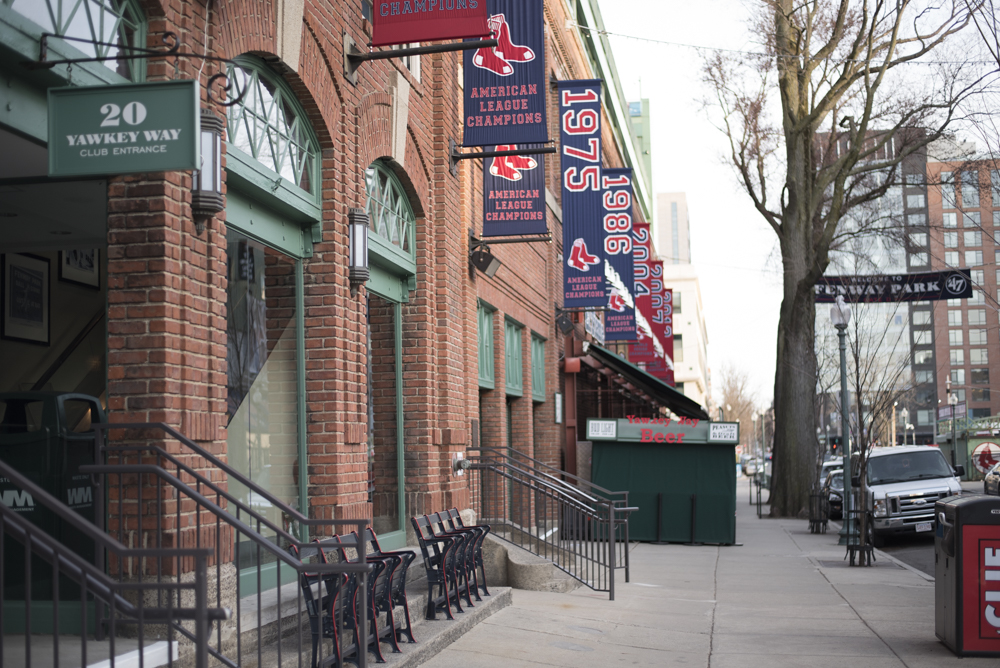
The continuing dispute over whether to rename Yawkey Way, a street near Fenway Park named after late Boston philanthropist and alleged racist Tom Yawkey, was given new wind by a letter written by the Jackie Robinson Foundation urging the city to keep the name as is.
Tom Yawkey was the owner of the Boston Red Sox from 1933 until he died in 1976. Yawkey has the reputation of being a racist and it is even believed that he yelled racist slurs at Jackie Robinson and other black players at a team tryout.
Yawkey did a great deal of charity in his day. Griff McNerney, a spokesman for Yawkey Foundations, said Yawkey donated a lot of his time and money to aiding the underprivileged.
“With great concern for the forgotten and underserved, Tom and Jean Yawkey took careful steps to ensure that their legacy would live on through the work of the Yawkey Foundations,” McNerney told The Daily Free Press.
The Yawkey Foundation has awarded over 4,800 grants with more than $450 million to nonprofit organizations in New England, McNerney said. Their focus is on areas such as education, youth athletics, human services, health care and arts and culture, he said.
Although the Jackie Robinson Foundation’s letter does not explicitly state its opinion on whether to change the name of the sign, the foundation voices its admiration of the Yawkey Foundation’s charitable contributions.
Among other things, the letter states: “… it has profoundly helped pave the way for the completion of the Jackie Robinson Museum, which will tackle the same complex racial dynamics that are swirling around the Yawkey Way naming controversy.”
In its letter, the Jackie Robinson Foundation said it remains hopeful that its efforts will continue contributing to “leveling the playing field” for all to pursue the promise the United States offers its citizens.
Other organizations around the Boston area concurred with the letter.
Darnell Williams, president and CEO of the Urban League of Eastern Massachusetts, told The Daily Free Press that he thinks changing the name of Yawkey Way will not erase Boston’s history of racism.
“America has a track record of racism with its policies at the federal, state and local level,” Williams said. “And so, for us to try to say what we think we know and try to make that a reality, to me, is a little questionable.”
ULEM provides job training for Americans who are looking to earn a living in meaningful careers. The organization will turn 100 years old in 2019, Williams said. While it accepts everybody within its walls, it is designed mostly to assist members of urban, underprivileged communities.
“I would rather take our energy and our collective will and figure out how do we build a better, more equitable and social justice society to try to make it better for everyone,” Williams said. “I can’t eliminate racism.”
While many Boston residents agree with the sentiments of ULEM, it is a little more cut-and-dry to others, like Dwayne Burgess, 52, of Dorchester.
“I think that as society we often let the good outweigh the bad,” Burgess said. “I think in this instance, the bad outweighs the good. I don’t think that anybody who’s racist deserves a street named after them.”
Other locals, like Emma Sweeney, 24, of Kenmore, said they were more interested in the precedent removing Yawkey’s name sets.
“It’s interesting to think how many landmarks in the city are named after people who are racist,” Sweeney said. “How many of them are we treating like this one?”
Sweeney added that she thinks all people, including Yawkey, deserve retribution.
“If he did a bunch of charity work, it might outweigh his personal flaws,” Sweeney said. “I just hope we can stop putting people on a pedestal and then find out they’re objectionable people.”
The battle for the street name would continue for at least another two weeks, as the Public Improvement Commission delayed voting in a meeting Thursday.











